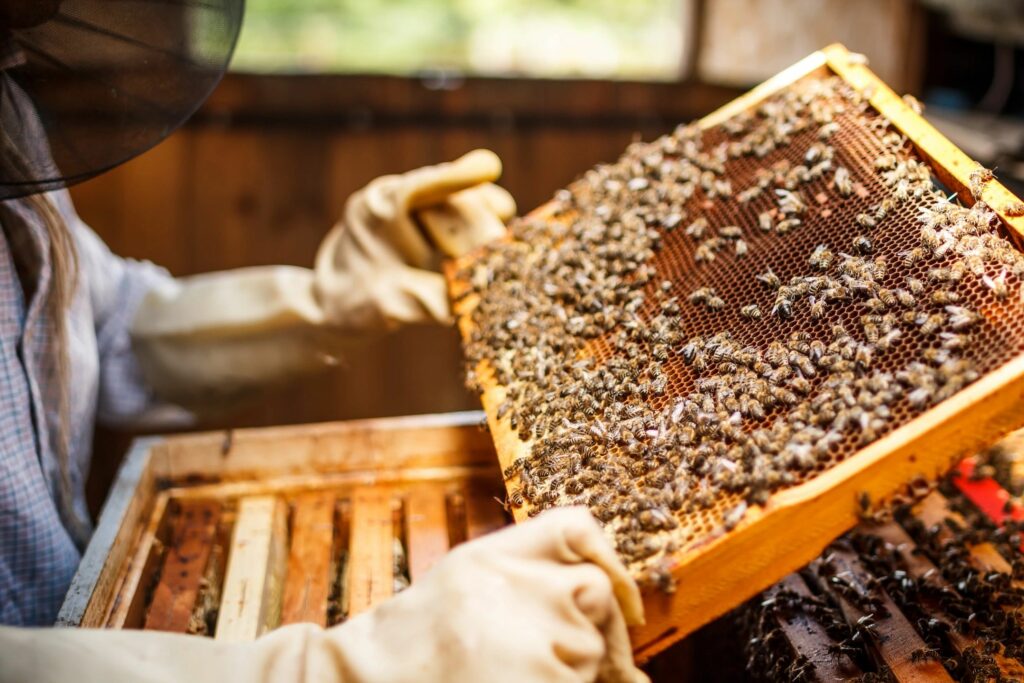As beekeepers we are always concerned with how the bees are doing at our own hives, but as people we are concerned with how the bees are faring around the world. The health of the honey bees has been a trending subject in news outlets, social media, and even at the honey stand at our local farmers market. We bring up topics such as pesticides, Varroa mites, colony collapse, and food security when we talk about the bees. We all agree that it’s crucial that we Save the Bees.

The history of beekeeping can be traced back over 10,000 years. Commercial beekeeping operations began in the 19th century to support the demand for honey. While commercial operations still exist today, the number of hobby beekeepers in the US has been growing in the last several years. One thing that beekeepers will all agree with is that it is very normal for a significant percent of their bee colonies to die off on an annual basis. In the US, this percent of loss can sometimes reach as high as 30 – 40%.
Bees can die from a combination of natural and unnatural causes. For starters, worker bees naturally have a life span of only about six weeks. These losses are quickly replaced by the up to 2,000 eggs that a queen can lay per day. Other natural causes of death are weather, parasites, diseases, and loss of food sources. Most beekeepers would agree that the biggest overall threat is from a parasite named the Varroa mite.
Varroa mites are deadly to bees because they feed directly on them, their brood, and transmit diseases to the bees. Varroa mites were first discovered in North America in the 1980s. Before their discovery the annual colony losses were closer to 10%. Fortunately, beekeepers now have an array of methods to help detect, control, and eliminate the Varroa mite.
Unnatural causes of death can be attributed to substances such as pesticides and neonicotinoids. Pesticides are used to help keep our food supply from being destroyed by things such as insects or weeds. If these pesticides are misused then this can damage or destroy the health of a bee colony. Increasing regulations, testing, and user guides are now being required by several government agencies.
Honey bees are highly domesticated, meaning the majority of colonies are maintained by beekeepers. Therefore, the burden of the survival of these amazing creatures is mostly on the dedicated beekeepers. Fortunately, the majority of beekeepers are reporting an overall increase of colonies and there is an estimated 3.5 million colonies in the United States. For now, the future is bright for the honey bees but we must continue to fight to save the bees.
Thank you for all the interesting info.
See you at the Delray Market next month.
I’d like to get Propolis if possible, along with Manuka and infused.
Thanks for the comment, yes we’ll be fully stocked with those items. See you there.